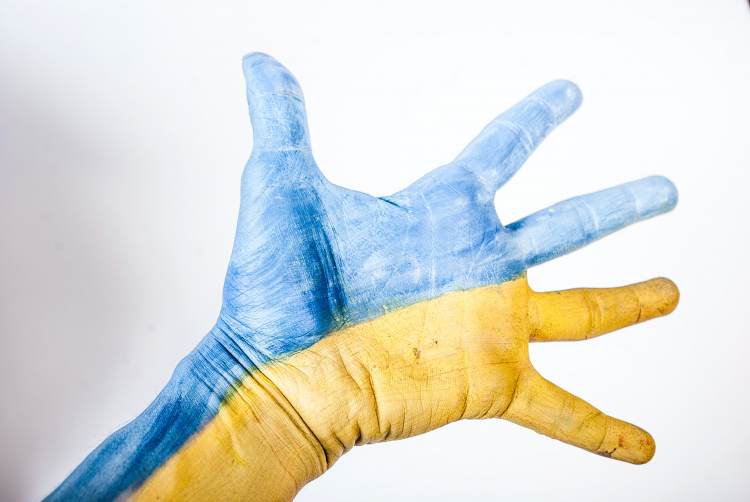The Flawed Perception of African Students in Ukraine

Following the Russian invasion of Ukraine in late February 2022, the world has been exposed, again, to the realities of war. While the world has rightfully come together to support Ukrainians and the defense of their national sovereignty, it has proven strangely apathetic to the struggle of African students in their attempts to flee the country.
Since the beginning of the crisis, many of Ukraine’s African international students have taken to social media to document their respective journeys from Ukraine. Multiple reports show students subjected to racial discrimination while trying to leave the country. This includes being turned away at the Polish border or refused access to foreign-bound trains, with many explaining that the safety of white Ukrainians was prioritized over their own.
Watch how they are threatening to shoot us!
We are currently at the Ukraine -Poland border.
Their Police and Army refused to let Africans cross they only allow Ukrainian.
Some have slept here for 2 days under this scorching cold weather, while many have gone back to Lviv. pic.twitter.com/47YG4gxFC4— Nze (@nzekiev) February 27, 2022
While it is in no way surprising that racism exists in Europe, what is shocking is how the world has responded to these injustices and what that response reveals.
First, a meaningful response to these acts has been largely absent. While legacy news and social media alike have covered the conflict, the injustices faced by these students have been largely ignored and were considered misinformation until confirmed by the United Nations and African Union.
When any ideas of race are even mentioned, the narratives promoted by news outlets about the Global South are nothing short of troubling. For example, while expressing his shock on air at the idea of war in Europe, CBS News foreign correspondent Charlie d’Agata said “These are not obviously refugees trying to get away from the Middle East...or North Africa. They look like any European family that you'd live next door to."
Media has a clear double standard towards war and conflict: troubling and heartbreaking when its victims are Europeans, but expected or even normal when its victims are from the Global South. The empathy reserved for white Ukrainians is not at all extended to their non-white counterparts.
While it should be recognized that Ukrainians have and continue to suffer under Russian attack, the sympathy much of the world has for Ukraine is not truly for all parties involved. Take it from former Ukrainian Deputy General Prosecutor David Sakvarelidze who, in the early days of the conflict, said to BBC News that “[the conflict is] very emotional for me because I see European people with blue eyes and blonde hair being killed”.
She didn’t get the memo. “To put it bluntly, these are not refugees from Syria, these are refugees from Ukraine... They're Christian, they're white, they're very similar." pic.twitter.com/1Ch88mtx5K
— Arwa Ibrahim (@arwaib) February 27, 2022
Statements like these, echoed by anchors and correspondents across networks, continue to reinforce a specific vision of the Global South. We are familiar with Africa and the Middle East as war zones, and they therefore remain as such in our common imagination. In a similar way, the coverage of the Ukraine conflict also reinforces a specific vision of who the residents of the Global South are.
For example, it is commonly understood that most of Ukraine's non-white population is made of refugees and immigrants while, in fact, the majority of Ukraine's non-white population is made of international students from Africa and South Asia. Ukraine, as is true for the rest of the historical Soviet bloc, has a history of welcoming African students since the Cold War. Racist bias and the picture of the Global South has clearly impacted the perception of these students, both by Ukrainians and the wider world.
These students are not even safe across the border, with confirmed reports of a racist disinformation campaign spearheaded by the Polish extreme right that painted the students as criminal migrants.
It is clear that the treatment of African students in Ukraine is unjust. Despite any justified anger, the current vision of the Global South and its inhabitants is an idea that will not disappear any time soon. It is also a portrayal compounded by the media we consume, that shows us the Global South as poor and politically unstable.
We would like to tell ourselves that the world has come so far, or has overcome some of these systemic beliefs. And yet, the conflict in Ukraine has shown us that we have not come nearly as far as we thought.







